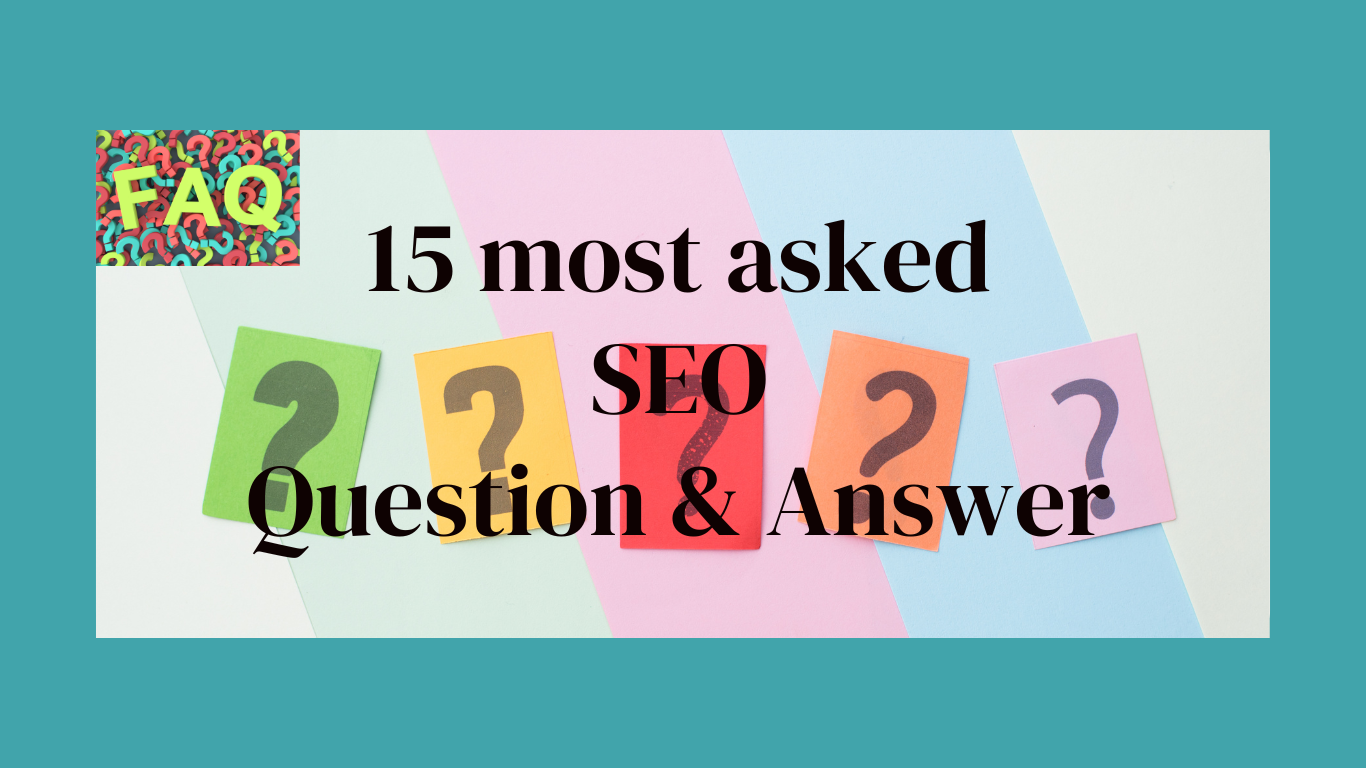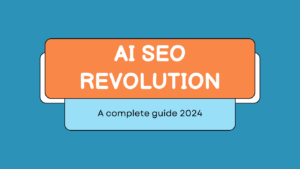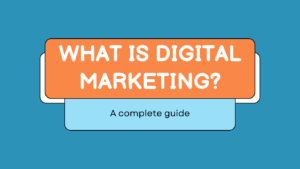In today’s digital world, knowing about SEO is super important for businesses and marketers. This guide covers the top 20 questions people ask about SEO, giving easy-to-understand answers. We’ll start with the basics and move to more advanced stuff, helping you understand how SEO works and how to use it to make your website more visible and get more visitors. Let’s get started on this SEO adventure together!
What is SEO, and why is it important?
SEO, or Search Engine Optimization, is the process of optimizing a website to improve its visibility and ranking in search engine results pages (SERPs). It involves various strategies and techniques, such as keyword optimization, content creation, and link building, aimed at making a website more relevant and authoritative to search engines like Google.
SEO is important because it helps websites attract organic (non-paid) traffic from search engines, which is often highly targeted and valuable. By appearing higher in search results for relevant queries, websites can increase their visibility, drive more traffic, and ultimately, achieve their business goals, whether it’s generating leads, making sales, or building brand awareness. In today’s digital age, where consumers rely heavily on search engines to find information, products, and services, having a strong SEO strategy is essential for businesses to succeed online.
What are the three most important ranking factors in SEO?
The three most critical ranking factors in SEO are relevance, authority, and user experience. Relevance ensures that the content matches the user’s search intent, authority establishes the credibility of the website, and user experience focuses on providing a seamless and valuable experience for visitors.
Can you explain the difference between on-page and off-page SEO?
“On-page SEO refers to optimization efforts made directly on a website to improve its search engine rankings. This includes optimizing content, meta tags, headings, images, and internal linking structure.
Off-page SEO, on the other hand, involves optimization activities that take place outside of the website itself. This primarily revolves around building backlinks from other authoritative websites, as well as engaging in social media marketing and online reputation management.
In essence, while on-page SEO focuses on optimizing the content and structure of a website, off-page SEO involves activities that aim to improve the website’s authority, relevance, and reputation across the web.
How do search engines work, and how does SEO impact their results?
Search engines work by crawling, indexing, and ranking web pages based on various factors like relevance, authority, and user experience. SEO impacts search engine results by optimizing websites to align with these factors, thus improving their visibility and ranking in search engine results pages (SERPs).
Web crawling is the process where search engine bots crawl websites for indexing. Those are called spider or spider bots. Crawlers use hyperlinks to visit other pages, and document and bring information back to the web servers for indexing. Once the crawler visits a page, it makes a copy of it and adds its URLs to indexing.
Crawling is important because of indexing as if the website contents or pages would not appear in the search results if they are not indexed.
What tools do you use for keyword research and analysis?
I use a combination of tools for keyword research and analysis, including Google Keyword Planner, SEMrush, Ahrefs, and Moz Keyword Explorer. These tools provide valuable insights into search volume, competition, and keyword trends, helping me identify relevant keywords for optimizing website content and improving search engine rankings.
How do you optimize website content for search engines?
To optimize website content for search engines, I focus on several key aspects. Firstly, I conduct keyword research to identify relevant keywords and incorporate them strategically into the content, including in titles, headings, and throughout the body. I also optimize meta tags, such as title tags and meta descriptions, to improve click-through rates in search results. Additionally, I ensure the content is well-structured, user-friendly, and provides value to the audience. This includes optimizing images with descriptive alt text, improving page load speed, and enhancing overall readability. Lastly, I regularly monitor performance metrics and make adjustments based on analytics data to continually improve search engine optimization efforts.
What are backlinks, and how do they affect SEO?
Backlinks are links from external websites that point to your website. They play a crucial role in SEO as they are seen as a vote of confidence or endorsement from other sites. High-quality backlinks from authoritative and relevant websites can improve your site’s credibility and authority in the eyes of search engines, leading to higher rankings in search results. However, it’s important to focus on acquiring quality backlinks rather than quantity, as low-quality or spammy backlinks can hurt SEO.
What is link building and what is its use of it?
Link building is the process of acquiring hyperlinks from other websites to your own. It plays a crucial role in SEO by indicating to search engines the credibility and relevance of your website. Quality backlinks can improve your website’s authority, visibility, and ranking in search engine results pages (SERPs).
How do you measure the success of an SEO campaign?
The success of an SEO campaign can be measured using various key performance indicators (KPIs) such as organic traffic, keyword rankings, click-through rates (CTRs), conversion rates, and return on investment (ROI). By tracking these metrics over time, we can assess the effectiveness of our SEO efforts and make data-driven decisions to optimize our strategies for better results.
Can you describe any experience you have with technical SEO?
Sure, I have experience with technical SEO, which involves optimizing website structure and performance for search engines. This includes tasks like improving site speed, fixing crawl errors, optimizing URL structures, implementing schema markup, and ensuring mobile-friendliness. By addressing technical aspects, we can enhance site visibility, user experience, and search engine rankings.
What are 301 and 302 redirects?
A 301 redirect is a permanent redirect from one URL to another, informing search engines that the original URL has permanently moved to a new location. It passes on the link equity and ensures that users and search engines are directed to the correct page.
On the other hand, a 302 redirect is a temporary redirect that indicates the moved content is only temporarily located at the new URL. Unlike a 301 redirect, a 302 redirect does not pass on link equity and is often used for short-term purposes, such as website maintenance or testing.
Have you worked with Google Analytics or other SEO-related tools?
Yes, I’m proficient in Google Analytics and have used other SEO tools like SEMrush, Ahrefs, and Moz. With Google Analytics, I track website traffic, user behavior, and conversion metrics to evaluate SEO performance and identify areas for improvement. Additionally, I utilize these tools for keyword research, competitor analysis, and monitoring backlink profiles.
How do you stay updated with the latest trends and updates in SEO?
I stay updated with the latest trends and updates in SEO by regularly reading industry blogs, attending webinars and conferences, and participating in online communities like SEO forums and social media groups. Additionally, I subscribe to newsletters from reputable SEO websites and follow thought leaders on platforms like Twitter and LinkedIn to stay informed about emerging trends and best practices.
What is Sitemap and Why is it used for?
A sitemap is a file that lists all the pages of a website to help search engines crawl and index its content more effectively. It serves as a roadmap for search engine bots, ensuring they discover and understand the structure and hierarchy of the site’s pages. Sitemaps also assist in identifying important pages and indicating when they were last updated, improving overall website visibility and SEO performance.
What is the role of user experience (UX) in SEO?
User experience plays a crucial role in SEO as search engines prioritize websites that provide a positive experience for users. Factors like site speed, mobile-friendliness, navigation, and content relevance contribute to improved rankings and better user engagement.
FAQs:
Some common SEO mistakes to avoid include keyword stuffing, neglecting mobile optimization, ignoring technical SEO issues, using low-quality or duplicate content, and neglecting the importance of user experience. It’s essential to follow best practices and stay updated with algorithm changes to avoid these pitfalls and ensure effective SEO performance.
The timeline for seeing results from an SEO campaign can vary depending on various factors such as the competitiveness of keywords, the current state of the website, and the effectiveness of the SEO strategies implemented. In general, it’s common to start seeing some improvements within a few weeks to a few months after implementing SEO changes. However, significant results may take several months or even longer to become noticeable. Consistent effort, monitoring, and adjustments are essential for achieving and maintaining long-term SEO success.
Improving website speed is crucial for both user experience and SEO performance. Optimize images by compressing and resizing them to reduce file size. Minimize HTTP requests by reducing page elements like scripts and stylesheets. Enable browser caching and Gzip compression to further reduce load times. Implement a Content Delivery Network (CDN) to distribute content globally. Upgrade hosting plans and configurations to optimize server response time. Implement Accelerated Mobile Pages (AMP) for faster loading on mobile devices. Prioritize above-the-fold content and regularly monitor website performance with tools like Google PageSpeed Insights. These strategies enhance user satisfaction and boost search engine rankings.
Mobile optimization is crucial for SEO because of the growing number of users accessing the internet via mobile devices. Google prioritizes mobile-friendly websites in search results, so optimizing for mobile improves visibility and rankings. Additionally, user experience is enhanced, leading to lower bounce rates and higher engagement metrics, which further contribute to SEO performance. In summary, mobile optimization is essential for maximizing reach, improving user experience, and enhancing SEO effectiveness.
Competitor analysis in SEO involves identifying competitors, evaluating their strategies, and leveraging insights to inform your own SEO strategy. This includes assessing competitor keywords, backlink profiles, content quality, and overall website performance. By understanding competitor strengths and weaknesses, you can identify opportunities for improvement and develop a strategy to outrank them in search results. This process helps to identify gaps in your own strategy, discover new keyword opportunities, and refine your approach to SEO for better results.
Conclusion
In conclusion, understanding the complexity of SEO can greatly impact your online presence. By addressing these 15 commonly asked questions and accompanying FAQs, we’ve provided a comprehensive guide to navigating the world of SEO. Remember, staying informed, adapting to changes, and implementing best practices are key to success in the ever-evolving digital landscape. Here’s to optimizing your website and driving sustainable growth through SEO!



